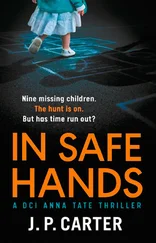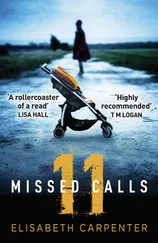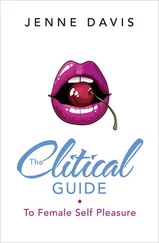The Inspector came, pushing aside the heavy crimson curtain and assessing our bared, inert bodies with satisfaction or dissatisfaction, I couldn’t see which. He rearranged his glossy, sateen sheet around his body and pushed two hairy arms out from the white. A large and expensive wristwatch shone gold on his left wrist, no longer working, its hands still. He lifted Anna’s limpened wrist as she smiled up at him Brightly. He turned the wrist over and opened up a lab notebook to a page flagged with a small red tag. He wrote numbers in the margin and sketched in red pencil the topography of her veiny underwrist. He turned her arm back over and took a small flashlight from his tool case, shone the light on her forearm, throat, cheekbones. “Great,” he said, “looks like you’re really thinning out. I can almost see something moving, a little bit of a kick forcing the flesh around.” Then he pulled down the covers and illuminated her lower belly, where the pale and freckled white skin cased her gut and viscera. In the shadow of him, she tilted her head from side to side as though she heard a secret music, pleasant and mellow, played at volumes too soft to hear.
He packed the flashlight away and pulled out a small, slim rod, tapered like a chopstick, and dragged it lightly over her arm, shoulder, torso, leg, long strokes like a razor. He looked at the rod and put it into a plastic bag, tucked the plastic bag back into his toolbox, wrote numbers in neat columns on notebook paper. “I’m seeing good texture,” he said, neck still bent, pointing that large sheeted head toward the notebook in his lap. “Smooth, even, very flat. Good transparency, as I said before, improving. We also call that diaphaneity. Just a fact. If there is one thing you could work on, I’d say it’s hardness. Think brittle, or bony. Like a shell or fragile porcelain cup. In nature, successful eggs are almost always a compromise between protection and vulnerability. Meditate on that. And as always, keep thinking Bright. Are your memories shaping up?” he asked, turning the page in his notebook.
“Extremely well,” said Anna. She looked over at me. I looked away.
“I suppose it’s your turn,” the Inspector said, his back still facing me. His shoulders shook slightly as he wrote in his book.
“She’s not doing well,” said Anna.
“I’m doing great,” I said.
“She’s not doing great,” Anna said. “She’s very troubled.”
The Inspector turned and pointed his eyeholes toward me.
“You have a stormy look,” he observed.
“Test her properties,” said Anna, sitting up sharply.
“Don’t listen to her,” I said, trying not to shout but probably shouting anyway. Anna shifted around, twisting her body as if she were about to get up. She had this look on her face that was like no look I had ever seen before. It was a thing that reminded me only of this place, uniquely, and no place else. It was like pity, like the weaponized pity you have for a thing you are about to crush, but she was scared of me, too. I wondered if this feeling had ever been seen on my face by someone else that I hoped to crush. The Inspector was leaning in toward me now, trying to get a view of me through the better, larger hole in the sheet.
“Why don’t you want to be inspected?” he asked.
“It’s not that. Please don’t listen to her. She’s trying to destroy me,” I said, reaching out maybe to touch his clothed forearm, then drawing back. Touch was forbidden; it passed memories of touch and feeling. Touch was too persuasive.
“I’m not,” said Anna. “I’m just trying to protect us all. She’s leaking Dark thought all over the place. You must feel it,” she said. She was making a kneading motion in front of her with two bony hands, as though the Darkness were in the air and she were wringing it out.
“I feel something,” he said. “It’s true.”
He looked more closely at me, as though I might have something written in my eye, a note from the manufacturer or instructions for use.
“She has these dreams in the middle of the night. They’re not from here. In them it’s like she’s hugging someone, over and over again. Sometimes like she’s eating something long and choky. These aren’t things we have here, or can do here. She’s bringing them in. She can’t leave herself behind. She, like, adores it. She’s spilling all over me. You have to do something about her.” Anna was running out of things to say, but she never slowed, she started again at the beginning, there was no air, no breath, between her words.
“She’s wrong,” I said, trying to jam my voice in between the gaps in her own.
He peered at me encouragingly.
“She’s doing it,” I said. I tried to think of specifics.
“Sometimes I’m sitting here working on my unmemories, and I’ll see her looking at me with this look of recognition. Not a normal recognition look, like ‘I see you every day.’ It’s like I’m a long-lost sister to her,” I said. I added: “I see it in her face.”
“That’s inconclusive,” said the Inspector. “That could be your work.”
“But it’s not,” I said. “I’m pure and Bright. I sought out my differences and overwrote them. I replaced the background, the foreground, the characters, the situations. I was born here, in the Church. I have always been here, in the Church.”
“She had a weird interaction with a new recruit today,” said Anna.
The Inspector swiveled toward her.
“Describe,” he said.
“I saw her take a new recruit through the three baths, a teenage girl. Blond. Halfway through the second bath the girl got spooked. She started trying to use her eyes. She looked at that processor”—Anna pointed at me with a finger as straight and brittle as a twig—“and she started shouting she knew her, she knew her. And said a lot of junk about some apartments and some car.”
“That wasn’t about me,” I said. “She couldn’t even see my face.”
“She didn’t have to,” countered Anna. “The past was thick on you.”
The Inspector cleared his throat.
“How,” he asked, “did you know it was her if her face was properly sheeted up?”
Anna sat back and looked smug.
“She’s my space mate,” Anna said. “I know how she moves, her size, her shape. I know it because I know everything I’ve seen in here. It’s all I know.”
My throat had a choke in the base of it. I didn’t know what to say, but I could tell that I was going to lose.
“We’ll need to give you a survey and see if you’re marked for sortdown,” he said, not unsympathetically. He rooted through his toolbox for the papers.
“Okay,” I said. I closed my eyes and tried to think about this place and nothing else, this room and nothing else. Inside this dark, cramped, red-curtained room, I lay and built a red-curtained room in my mind, I put myself in it with the Inspector, and I left Anna out.
“All right,” he said. “I’ve got it. Now just answer these questions to the best of your ability.”
“Okay,” I said.
“Here’s the first one,” he said.
DO YOU EVER FEEL LOST, DESPERATE, OUT OF CONTROL IN TERMS OF YOUR THOUGHTS, OR AS THOUGH YOUR FEELINGS HAVE FEELINGS OF THEIR OWN?
“No,” I said. “I feel even and Bright. My feelings are pretty much responses to what happens in the daily management of Darkness. Feelings of fulfillment when I work. Et cetera.”
He paused as he wrote down: No. Feelings of fulfillment.
CHECK INNER AND OUTER BODY FOR TRANSPARENCY. DO YOU NOTICE AREAS OF INCREASED OR DECREASED APPEARANCE ON ANY OF THE TOP TEN BODY ORGANS? DO THESE FLUCTUATE AS YOU OBSERVE THE WORLD?
“Oh,” he said. “This one’s for me. Hold still, I’ll be checking your diaphaneity.”
Читать дальше
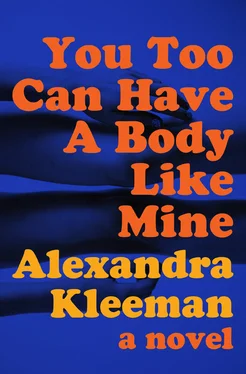

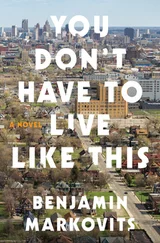
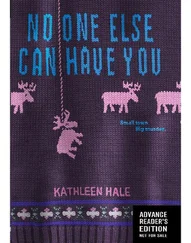
![Ally Carter - [Gallagher Girls 01] I'd Tell You I Love You But Then I'd Have to Kill You](/books/262179/ally-carter-gallagher-girls-01-i-d-tell-you-i-lo-thumb.webp)


